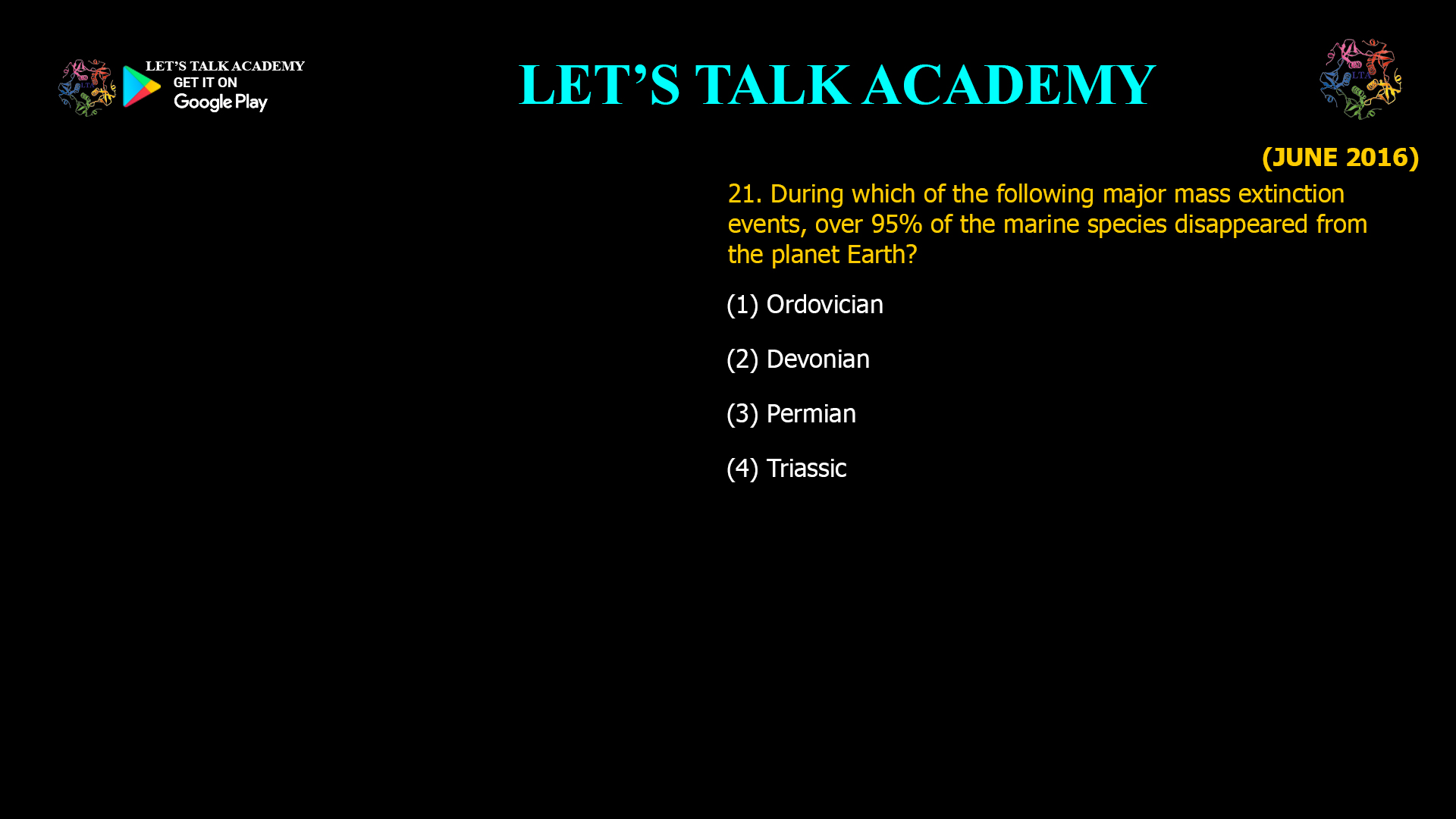- During which of the following major mass extinction events, over 95% of the marine species disappeared from the planet Earth?
(1) Ordovician (2) Devonian
(3) Permian (4) TriassicIntroduction
Earth’s history has been shaped by several mass extinction events, but none compare to the scale and devastation of the Permian–Triassic extinction, also known as the “Great Dying.” This event stands out for the unprecedented loss of marine life, fundamentally altering the course of evolution on our planet.
The Greatest Mass Extinction: Permian–Triassic Event
-
The Permian–Triassic extinction event occurred about 252 million years ago, at the boundary between the Permian and Triassic periods.
-
It is recognized as the most severe extinction event in Earth’s history, with scientific estimates indicating that over 95% of marine species disappeared from the planet during this time256.
-
This catastrophic loss affected not only marine organisms but also terrestrial life, with about 70% of land vertebrate species going extinct16.
Causes of the Extinction
-
The main driver behind this mass extinction was massive volcanic eruptions in Siberia, known as the Siberian Traps, which released enormous amounts of greenhouse gases into the atmosphere156.
-
The resulting global warming, ocean acidification, and depletion of oceanic oxygen created inhospitable conditions for marine life, leading to widespread suffocation and collapse of marine ecosystems26.
-
Additional factors such as acid rain, ozone layer depletion, and possible methane release further contributed to the severity of the extinction156.
The Correct Answer
Given the options:
-
Ordovician
-
Devonian
-
Permian
-
Triassic
The correct answer is:
(3) Permian
Conclusion
The Permian–Triassic extinction event marks the darkest chapter in Earth’s biological history, wiping out more than 95% of marine species and reshaping life on the planet. This “Great Dying” serves as a powerful reminder of the planet’s vulnerability to rapid environmental change and the interconnectedness of life.
-



